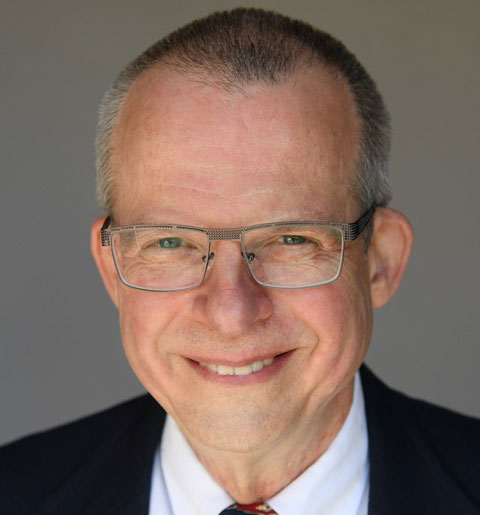Medication Assisted Treatment (MAT)
Rehab in Washington
Detox is a critical and necessary part of recovery from an addiction to drugs and alcohol, but it can be one of the most challenging parts, and without a full, complete, and successful detox, subsequent substance abuse treatment may have little or no effect. The intensity of withdrawal symptoms can be incredibly strong. Many individuals who attempt to detox on their own will fail. This is because, to alleviate their symptoms, they quickly return to their drug of choice.
A medication-assisted treatment program (MAT) gives individuals who want to recover a way to minimize the risk of relapse. It can also end their dependency and recover with long-term success.

What is Medication Assisted Treatment (MAT)?
Medication-assisted treatment is a clinically driven approach for substance use disorders that involves the use of FDA-approved medications, in combination with counseling and behavioral therapies. MAT is often used to treat opioid and alcohol use disorders, and it has been proven effective in improving outcomes, reducing the risk of overdose, and decreasing substance misuse.
The medications used in MAT work by reducing cravings, withdrawal symptoms, and removing the temptation to use again. MAT also blocks the effects of opioids or alcohol, meaning individuals are less likely to engage in substance use because they will not achieve the same results.
MAT is typically prescribed and monitored by a healthcare provider as part of an individual’s treatment plan. MAT is also typically an option that individuals must qualify for in order to be prescribed these medications. Each person’s substance use disorders are reviewed on a case-by-case basis to see if they qualify for these treatment medications.
At Bayview Recovery, we’re committed to providing the care that our patients need to overcome their addictions. With the help of medication-assisted treatment, dual diagnosis treatment, and our other options, we give them the tools they need to heal. To learn more about our services, please contact Bayview Recovery today at

The Challenges of Withdrawal in Substance Abuse Treatment
Among the most difficult challenges of recovering from drugs or alcohol are the withdrawal symptoms associated with detox. Withdrawal symptoms can be a painful part of the recovery process, which all clients will want to avoid. These symptoms can be especially intense for alcohol and opioid users. At this stage in recovery, an individual’s body will require the abused substances to function normally. Without them, serious health consequences are possible.
Medication-assisted treatment works by satisfying the body’s chemical needs without substance abuse, which allows the client to begin chemically separating from their drugs of choice safely, without developing an addiction to the medication used for treatment. With reduced withdrawal symptoms, clients now have a much higher chance of successfully completing addiction treatment and avoiding relapse in the long term.
Common withdrawal symptoms which can be avoided through the use of medication-assisted treatment during recovery include:
- Elevated body temperature and heart rate
- Nausea and vomiting
- Muscle aches and cramps
- Anxiety and depression
- Sleeping issues
In addition to reducing withdrawal symptoms, a medication-assisted treatment program reduces the cravings for the abused drugs. This aspect of treatment alone makes it a critical component of a comprehensive detox and recovery plan for individuals who qualify, and individuals in the process of selecting a treatment facility should strongly consider those which offer MAT as an option.
How Medication-Assisted Treatment Can Facilitate Your Recovery

Medications Used in MAT Rehab
Several medications are used in medication-assisted treatment (MAT). The most commonly used medications are buprenorphine, methadone, and naltrexone. These medications are FDA-approved to treat alcohol and opioid addiction.
Medications Used for Alcohol Use Disorders
Acamprosate, disulfiram, and naltrexone are the three types of medication that are most commonly used in MAT treatment for alcohol use. These medications work differently to help manage cravings and promote a full recovery from alcohol addiction.
Acamprosate is used to help individuals who have already detoxed from alcohol refrain from using the substance again. It works by reducing symptoms related to withdrawal and alcohol cravings, as well as restoring the balance of brain chemicals that have been disrupted by alcohol use.
Disulfiram, also known as Antabuse, is another medication used in the MAT treatment for alcohol use disorder. It works by blocking the metabolism of alcohol in the body. This means if an individual engages in even the slightest amount of alcohol use they’ll encounter negative consequences such as nausea, vomiting, and headache. This can help to reinforce the decision to stay away from alcohol and can be an effective deterrent for those struggling with alcohol substance abuse.
Naltrexone, as mentioned before, is also used for alcohol use disorder. It reduces the pleasure and rewarding effects of drinking by blocking the opioid receptors in the brain, thus reducing cravings and the reinforcing effects of alcohol.
Medications Used for Opioid Use Disorders
Buprenorphine, methadone, and naltrexone are the primary medications used in MAT treatment for opioid use disorder. They work in different ways to help individuals manage cravings, treat withdrawal symptoms, and reinforce behaviors learned in opioid treatment programs.
Buprenorphine and methadone are opioid agonists, which means they activate the same receptors in the brain as opioids, but with milder effects. They work by reducing the symptoms of withdrawal and cravings associated with opioid use disorder and help to prevent relapse.
Naltrexone is a medication known as an opioid antagonist that binds to the same receptors as opioids, but it does not activate them. This medication will reduce cravings for opioids and alcohol and also blocks the effects of opioids so that individuals cannot get the same euphoric effects.
MAT is an evidence-based approach that has been shown to be effective in treating substance use disorders, particularly opioid and alcohol use disorders. It can help to reduce substance misuse, improve physical and mental health outcomes, and increase the likelihood of completing substance abuse treatment. However, it is important to note that MAT should be combined with counseling and other behavioral therapies for the best results.
Addiction Treatment that Includes MAT Treatment
A MAT program allows clients to get the most out of the following stages of alcohol or opioid addiction treatment that are offered by Bayview Recovery, which include:

How Medication-Assisted Treatment with Bayview Recovery Can Extend Your Sobriety
Recovery from substance use disorders is difficult, especially during the early stages. Of course, medications from MAT make this phase and all of your recovery more comfortable. It decreases the time you will need to spend in rehab and increases your chances of overcoming substance use disorders and sustaining recovery. This is why Bayview Recovery will facilitate this type of maintenance treatment of all qualifying patients. Patients who complete rehab can then return to their normal lives healthier. They can then continue their recovery with the help of outpatient or aftercare programs designed for their needs.
Bayview Recovery has worked with countless individuals to help them find MAT in our community as part of their broader course of treatment with us, including:

Contact Us
Our intensive outpatient program for substance abuse recovery is just one of the many options we offer to promote health, wellbeing, and a life without drugs and alcohol for you and your loved ones. Call Bayview Recovery today to learn more.
Dave Cundiff, MD, MPH is an experienced leader in the field of Substance Use Disorder treatment. He works with patients suffering from Substance Use Disorder to evaluate their medication needs and prescribe treatments accordingly. In addition, he regularly participates in all-staff debriefing sessions involving peers, nurses, and other prescribers. He also reviews and advises on policies, procedures, and techniques for treating substance use disorder.




